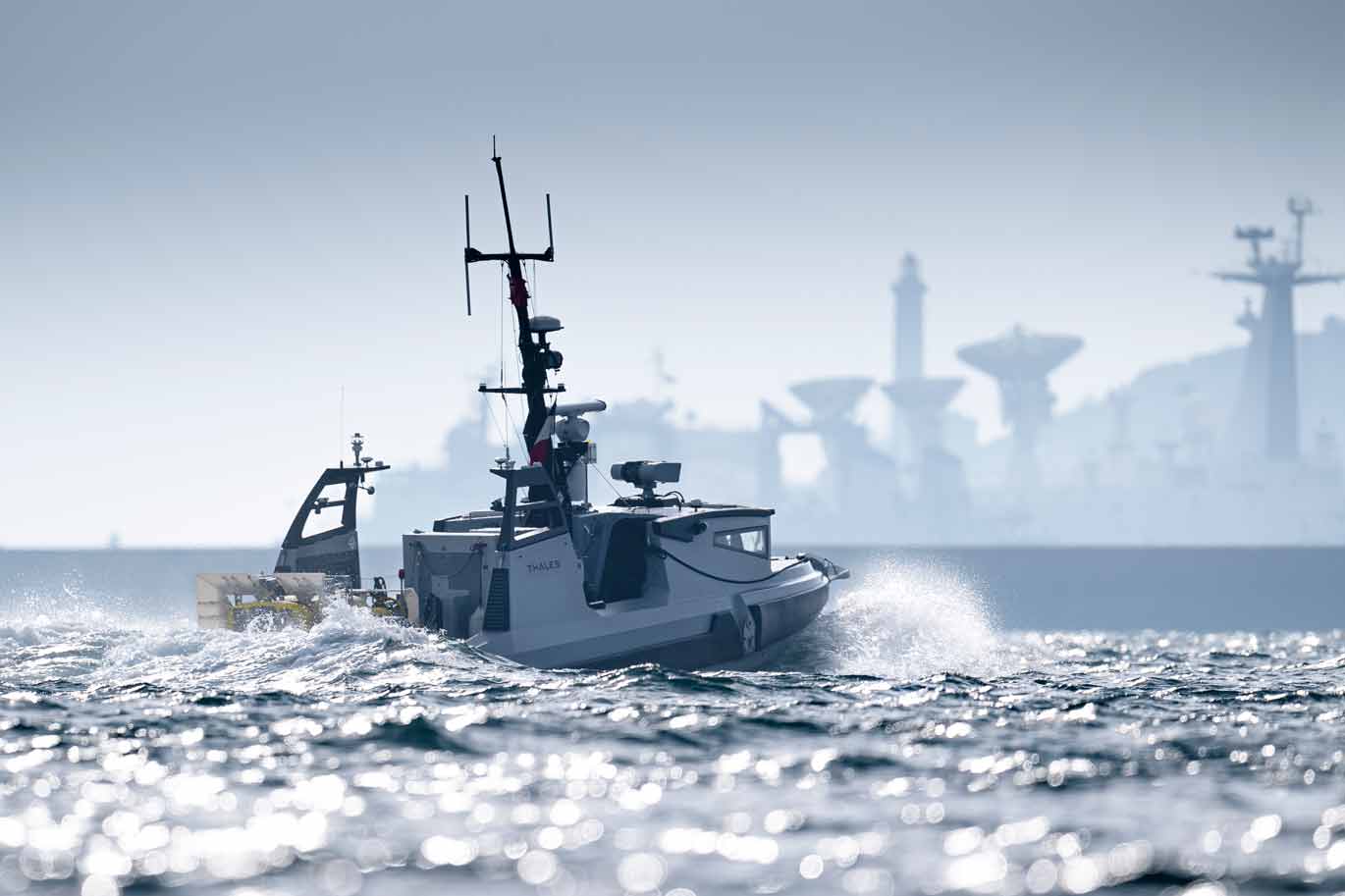French and UK navies achieve critical step towards autonomous mine-hunting.
Anita Hawser
15 June 2023

The uncrewed surface vessel in the Anglo-French Maritime Mine Counter Measures (MMCM) autonomous mine-hunting programme has passed a significant milestone during trials.
The USV, Royal Navy Motorboat (RNMB) Apollo, delivered by Thales, recently completed a demanding series of Royal Navy and industry open water assurance trials designed to prove that remotely controlled uncrewed vessels can be operated by a team at a shore-based control station while completing a series of tasks.
Thales said the trials demonstrated the USV’s ability to retain awareness of its course and position by using line-of-sight communications systems in what is believed to be the first UK military clearance of its kind.
The Apollo USV is fitted with sensors, including radar, LIDAR (light detection and ranging) and electro-optical and infra-red cameras, which allows the vessel’s position to be continuously relayed to the command-and-control centre over a secure communications network. Sensor inputs are then merged into a single tactical picture using Thales’ MCube mission management software, which allows for detecting and tracking other vessels and taking appropriate action, including remotely controlled avoidance manoeuvres.
“As the first of their kind, these trials are a significant milestone in the path towards certification of autonomous maritime systems for operational use,” stated Alex Cresswell, CEO and chairman of Thales UK. “They represent one of the first important steps in gaining trust in uncrewed vessels in a complex programme. The trial is a critical remote operation stepping-stone towards autonomous mine-hunting.”
Once in service, the USVs will be capable of operating in national waters or being air-transported across the world to hunt for mines in danger zones or secure sea lines of communications. They can be deployed and operated from ship and shore bases providing configurable capability.
The trials were completed in December 2022 by the Royal Navy Maritime Autonomous System Trials Team (MASTT), supported by Thales. Observing and approving the trials off Weymouth Bay were representatives from the UK Naval Authority and Technology Group (NATG) and the Mine Hunting Capability team from the Ministry of Defence.
The MMCM) programme will deliver autonomous mine-hunting capability for both the Royal Navy and France’s Marine Nationale, allowing both navies to continue their role of keeping shipping lanes open without putting sailors or crewed platforms in harm's way.
RNMB Apollo is one of the two pre-production Uncrewed Surface Vessels delivered to the Royal Navy and Marine Nationale (French Navy) in December 2021 as part of the UK-France MMCM programme which will bring autonomous mine-hunting capability to the two respective fleets.
Thales is actively working with both navies to deliver full operating capability in 2024.